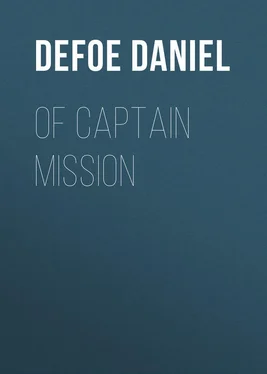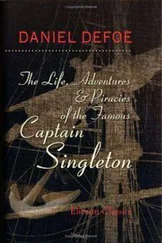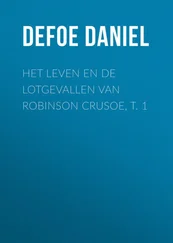Daniel Defoe - Of Captain Mission
Здесь есть возможность читать онлайн «Daniel Defoe - Of Captain Mission» — ознакомительный отрывок электронной книги совершенно бесплатно, а после прочтения отрывка купить полную версию. В некоторых случаях можно слушать аудио, скачать через торрент в формате fb2 и присутствует краткое содержание. Жанр: foreign_antique, foreign_prose, на английском языке. Описание произведения, (предисловие) а так же отзывы посетителей доступны на портале библиотеки ЛибКат.
- Название:Of Captain Mission
- Автор:
- Жанр:
- Год:неизвестен
- ISBN:нет данных
- Рейтинг книги:4 / 5. Голосов: 1
-
Избранное:Добавить в избранное
- Отзывы:
-
Ваша оценка:
- 80
- 1
- 2
- 3
- 4
- 5
Of Captain Mission: краткое содержание, описание и аннотация
Предлагаем к чтению аннотацию, описание, краткое содержание или предисловие (зависит от того, что написал сам автор книги «Of Captain Mission»). Если вы не нашли необходимую информацию о книге — напишите в комментариях, мы постараемся отыскать её.
Of Captain Mission — читать онлайн ознакомительный отрывок
Ниже представлен текст книги, разбитый по страницам. Система сохранения места последней прочитанной страницы, позволяет с удобством читать онлайн бесплатно книгу «Of Captain Mission», без необходимости каждый раз заново искать на чём Вы остановились. Поставьте закладку, и сможете в любой момент перейти на страницу, на которой закончили чтение.
Интервал:
Закладка:
A second influence on Captain Misson's ideology is Plutarch's description of the laws of Sparta and Rome. Even during the "Anti-Communist Period" which followed the Glorious Revolution, the well-regulated state of the Lacedemonians remained the norm for Utopias. The influence of Plutarch pervades the biographies in the General History of the Pyrates. Lycurgus' laws echo throughout Misson's attacks on luxury and the unequal distribution of wealth, while Plutarch's study of Spartacus, which is mentioned in Defoe's preface, may well have been the model for his hero.
But neither the desire to regain the purity of the state of nature nor an admiration for Spartan simplicity entirely explain Misson's vigorous demand for freedom and his attacks on the corruption of the ruling class. By refusing to fly the pirate flag, Misson dramatizes the growing revolt of the poor against a useless nobility. The crew of the Victoire are, prophetically enough, French. Their aspiration is for a society following the precepts of la carrière ouverte aux talents ; their revolt is that of a few courageous men unafraid to engage in the pirate's "war against mankind" while those of lesser courage "dance to the Musick of their Chains."
Defoe's study of Misson is different from the Utopias of More, Bacon or Campanella in so far as there is no discovery of an ideal civilization. Libertalia is a Utopia which reflects a direct reaction to the abuses of the time – abuses of economic, political and religious freedom. Anticipating Beccaria's criticism of the death penalty by almost forty years, Carracioli argues that since man's right to life is inalienable, no government can have the power of capital punishment. 4 4 ( return ) [ See Cesare Beccaria, An Essay on Crimes and Punishments (Stanford, 1953), pp. 97-99.] 5 ( return ) [ In the previous year Defoe had written that "it was the most dangerous thing in the World for a young Gentleman, sober and virtuous, to venture into Italy , till he was thoroughly grounded in Principle, … for that nothing was more ordinary, than for such either to be seduc'd, by the Subtlety of the Clergy, to embrace a false Religion, or by the Artifice of a worse Enemy, to give up all Religion, and sink into Scepticism and Deism , or, perhaps, Atheism ." A New Family Instructor (London, 1727), p. 17.] 6 ( return ) [ See Ruth Bourne, Queen Anne's Navy in the West Indies (New Haven, 1939), pp. 63, 169-172; and Manuscripts of the House of Lords , New Series (London, 1921), VII, 117-119.] 7 ( return ) [ See Philip Gosse, The History of Piracy (New York, 1934), p. 194; and Patrick Pringle, Jolly Roger (London, 1953), pp. 136-138.] Omne tulit punctum, qui miscuit utile dulci . Hor
Misson's belief in equality is extended to include the negro slaves the Victoire takes at sea as well as the natives of Madagascar. After asking the negroes to join his crew, Misson tells his men that the Trading for those of our own Species, could never be agreeable to the Eyes of divine Justice: That no Man had Power of the Liberty of another; and while those who profess'd a more enlightened Knowledge of the Deity, sold men like Beasts; they prov'd that their Religion was no more than Crimace…: For his Part he hop'd, he spoke the Sentiments of all his brave Companions, he had not exempted his Neck from the galling Yoak of Slavery, and asserted his own Liberty to enslave others.
Slavery is banished from Misson's ship, and the negroes are schooled in the principles of freedom.
Perhaps the most difficult problem in discussing the principles of Misson and Carracioli is to attempt an explanation of why Defoe, a Presbyterian, should have made his protagonists into deists. Defoe attacks Carracioli's deistic arguments through his narrator, Captain Johnson, who remarks that such ideas are pernicious only to "weak Men who cannot discover their Fallacy." But since similar ideas appear in Robert Drury's Journal published a year later, it may be assumed that the arguments of the deists held a certain fascination for Defoe at this time. Carracioli's deism also has a dramatic function in the story. That on a voyage to Rome a young man like Misson should be converted to deism by a disillusioned "lewd" priest was in harmony with the traditional English belief in the dangers of Italy. 5 5 ( return ) [ In the previous year Defoe had written that "it was the most dangerous thing in the World for a young Gentleman, sober and virtuous, to venture into Italy , till he was thoroughly grounded in Principle, … for that nothing was more ordinary, than for such either to be seduc'd, by the Subtlety of the Clergy, to embrace a false Religion, or by the Artifice of a worse Enemy, to give up all Religion, and sink into Scepticism and Deism , or, perhaps, Atheism ." A New Family Instructor (London, 1727), p. 17.] 6 ( return ) [ See Ruth Bourne, Queen Anne's Navy in the West Indies (New Haven, 1939), pp. 63, 169-172; and Manuscripts of the House of Lords , New Series (London, 1921), VII, 117-119.] 7 ( return ) [ See Philip Gosse, The History of Piracy (New York, 1934), p. 194; and Patrick Pringle, Jolly Roger (London, 1953), pp. 136-138.] Omne tulit punctum, qui miscuit utile dulci . Hor
That Carracioli should combine the rebellion against organized religion with the revolt against monarchy is indicative of Defoe's keen apprehension of the future course of history.
Considered as a short novel, the history "Of Captain Misson and his Crew" reveals many of the same techniques which Defoe used in his longer works. To gain a sense of verisimilitude the narrator pretends to be working from a manuscript, a device which Defoe also employed in his Memoirs of a Cavalier . As in Colonel Jack real historical figures and events from the War of the Spanish Succession are woven into the adventures of the Victoire . Captain Misson and his crew sink the Winchelsea, an English ship lost in the West Indies at the end of August, 1707, and they barely escape from Admiral Wager's fleet which fought a famous battle there in 1708. Even the name of Misson's ship, the Victoire ; was undoubtedly familiar to Defoe as the vessel commanded by the famous French corsair, Cornil Saus. 6 6 ( return ) [ See Ruth Bourne, Queen Anne's Navy in the West Indies (New Haven, 1939), pp. 63, 169-172; and Manuscripts of the House of Lords , New Series (London, 1921), VII, 117-119.] 7 ( return ) [ See Philip Gosse, The History of Piracy (New York, 1934), p. 194; and Patrick Pringle, Jolly Roger (London, 1953), pp. 136-138.] Omne tulit punctum, qui miscuit utile dulci . Hor
So convincing is Defoe that although his hero is shown meeting a real freebooter, Captain Tew, ten years after Tew's death, Misson is still included in the histories of piracy. 7 7 ( return ) [ See Philip Gosse, The History of Piracy (New York, 1934), p. 194; and Patrick Pringle, Jolly Roger (London, 1953), pp. 136-138.] Omne tulit punctum, qui miscuit utile dulci . Hor
Also typical of Defoe's fiction is the relationship between Captain Misson, the leader, and his intellectual mentor, Carracioli. Colonel Jack and his tutor, Moll Flanders and her Governess and particularly, Captain Singleton and William Walters form similar groups. Just as William Walters, a Quaker, reminds Captain Singleton and the crew that their business is not fighting but making money, so Carracioli addresses lengthy speeches to the crew, converting everyone on the Victoire to democracy and deism. Misson's Libertalia takes root in Madagascar, where Singleton wanted to establish a colony, while both Carracioli and Walters adapt the secular aspects of their religion to piracy. But whereas Walters eventually converts Singleton into an honest Christian, Carracioli leads Misson into piracy.
In the history "Of Captain Misson and his Crew," Defoe decided to pursue the same method of third person narrative as in his brief biographies of real pirates. The result is that he merely provides a sketch of political theories rather than a study of human beings. Of course there are good reasons for this. Defoe was more interested in dramatizing proletarian utopian ideals than in developing the inner workings of Misson's mind. The novelette is unified by its epic theme, not by its study of character or its episodic plot.
Читать дальшеИнтервал:
Закладка:
Похожие книги на «Of Captain Mission»
Представляем Вашему вниманию похожие книги на «Of Captain Mission» списком для выбора. Мы отобрали схожую по названию и смыслу литературу в надежде предоставить читателям больше вариантов отыскать новые, интересные, ещё непрочитанные произведения.
Обсуждение, отзывы о книге «Of Captain Mission» и просто собственные мнения читателей. Оставьте ваши комментарии, напишите, что Вы думаете о произведении, его смысле или главных героях. Укажите что конкретно понравилось, а что нет, и почему Вы так считаете.












